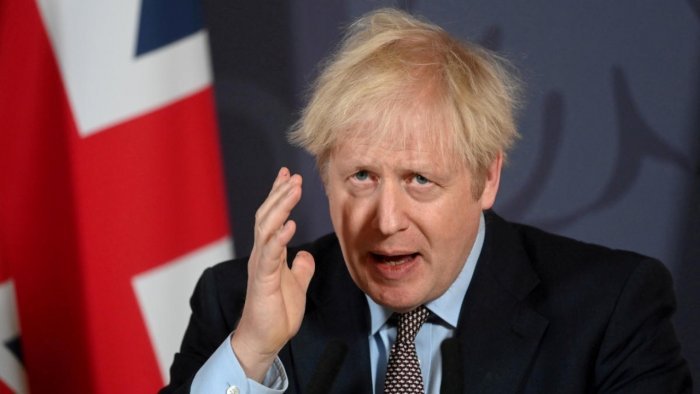It is no longer news that the British Parliament is shopping for a new leader of the Cabinet, the occupant of Number 10 Downing Street, having served a quit notice to the blond mop-haired Prime Minister.

In a twist of events, the pompous journalist-turned politician, Alexander Boris de Pfeffel Johnson had only survived a “vote of no confidence” days ago over his indiscretions in handling some official functions during the covid-lockdown era in the United Kingdom.
There had been growing uproar and public complaints about Boris Johnson’s penchant for social life, attending night parties and breaking other covid-lockdown protocols which his government had set. Here is a clime where there are no separate laws for the leaders and another for the led.
Just recently, foremost Nigerian politician and longest-serving Deputy Senate President, Ike Ekweremadu, was enmeshed in a human organ trafficking case in a Westminster Court. If it was in Nigeria, the intimidated and implicated kidney donor would have earned himself banishment to Kuje.
This is just one out of many instances where rules are made to be obeyed, irrespective of status or creed, gender or tribe.
The main reason for this treatise is to x-ray the ideals of society which the British hold dear and to draw lessons therefrom. While Boris Johnson struggled to hold on to straws of his decimated control on the Conservative-led House of Commons, majority of his cabinet members resigned. This indicated their individual show of dissent to a failing leadership.
This is a sharp contrast to what we see of politicians and ministers in Nigeria who lack every sense of morality and integrity that they could call white, black just to please their principals and stay in office for just one more day. One presidential aspirant once said of party delegates that most of them would forget their surnames at the sight of money.
Eleven contenders have emerged so far, jostling to replace the shaggy-haired BoJo. Eleven serious contenders. All brandishing their verifiable credentials and leadership qualities. No need to purchase any nomination forms with a N100m price tag. Your profile will sell you. The art of lobbying is a true skill for a British Parliamentarian, not vote-buying, delegate manipulation or election fixing.

There are remarkable features in the group profile of personalities in the race so far. Eleven contestants. Three females, all aged below 50. Five of them are children of immigrants. In fact, bookmakers rate highly, as frontliners, three of the contestants of Indo-Asian background. Here is a society where your race, religion/creed count for nothing. You are only “judged by the content of your character.” These factors form the bases for age-long discrimination in the politics of our dear nation, nay, in our day-to-day life. Even admission into unity schools are skewed on the altar of “federal character” and the job of president is well reserved for a particular section or at best rotated with little regard to competence and suitability.
Here are eleven contestants whose educational qualifications are not in doubt. Their average age is 47.9 years. Seven of them are aged below 50. But then, in Mungo Park’s Nigeria, we are inclined to having geriatrics lead us even though they do so for months from hospital beds in London, so far as they could buy the electorates’ votes.
The average Nigerian contemporary of Messrs Rishi Sunak, Suella Braverman or our own *Kemi Badenoch* (née Adegoke) at 42 are largely underemployed or at best, praise-singers to the exploitative elitist politicians who keep singing gleefully that the “youths are the leaders of tomorrow”.
The tomorrow of the Nigerian youth, who incidentally make up over 60% of our growing population, is come, thankfully again. The electoral processes have begun and we either collectively fix our nation, or allow it continue on this downward slide into the abyss.
Events in the UK offer timely lessons on the ideals of democracy. The time, to act, is now.
Ikenna Mbata, a socio-political commentator, writes from Owerri, Nigeria.
![]()



